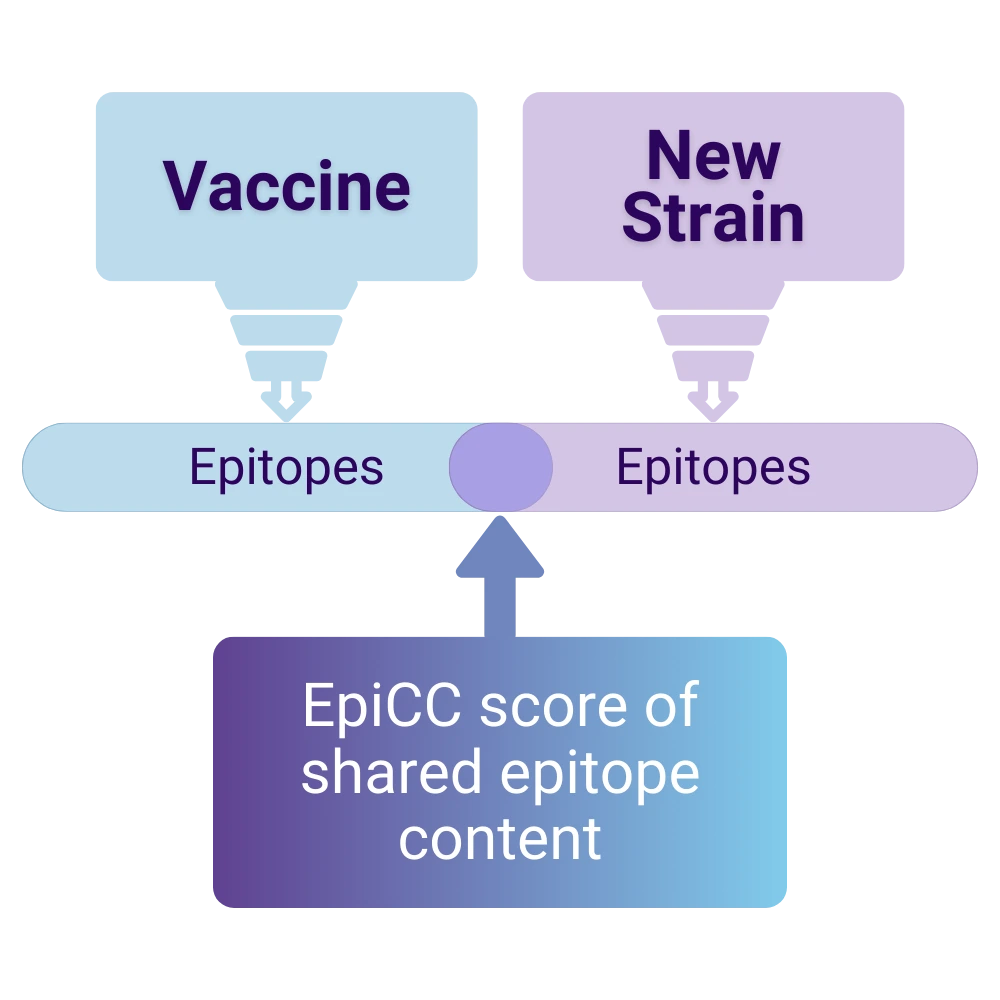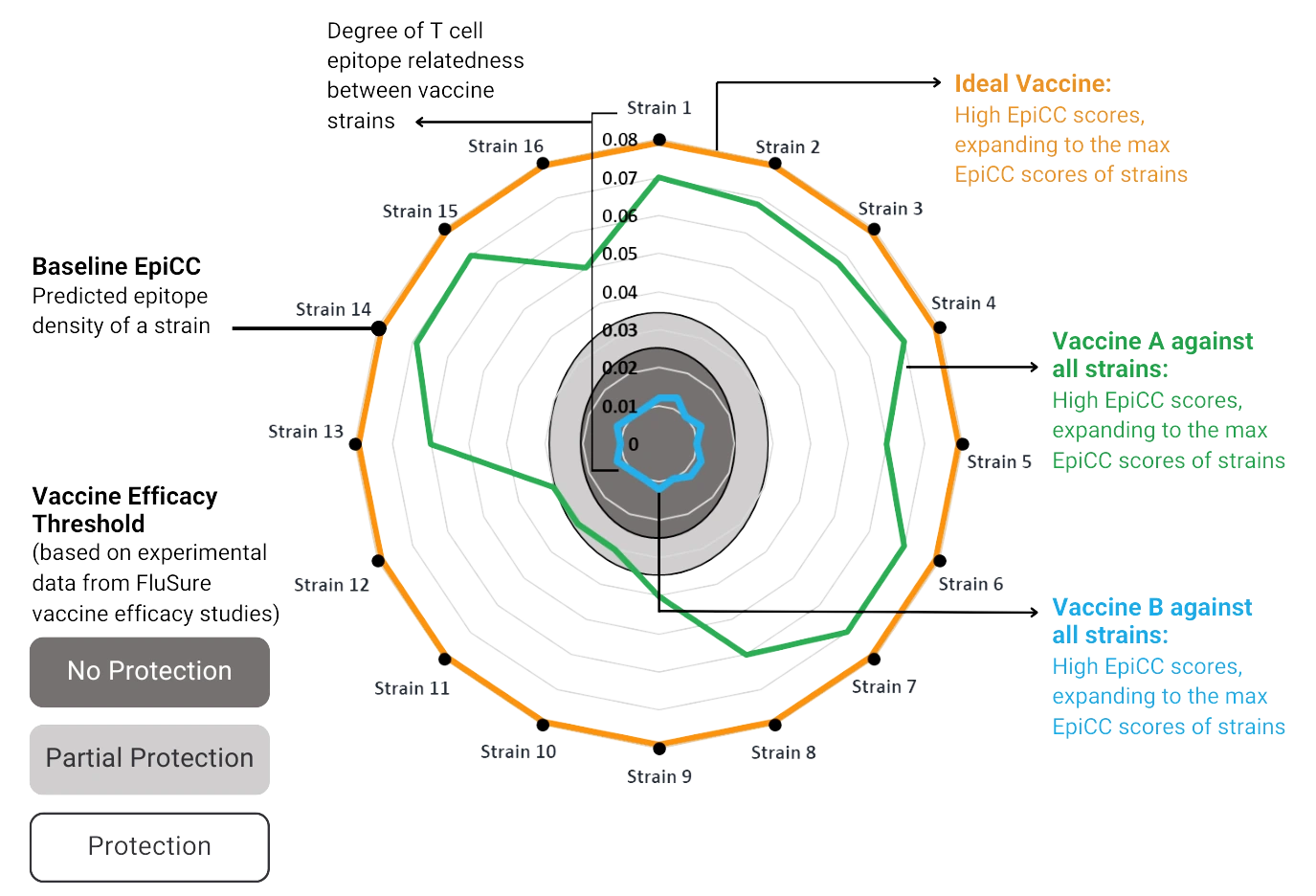An Epitope Content Comparison Tool
Accurately predict the immunogenicity of vaccines.
Throughout years of computational vaccinology work, EpiVax scientists have explored the role of T cell epitopes in vaccine efficacy using the proprietary EpiCC™ (Epitope Content Comparison) tool. The EpiCC™ tool enables the assessment of T cell epitope homology between two or more related protein sequences or pathogens. Higher conservation of T cell epitopes between vaccine and circulating strains (higher EpiCC™ scores) are thought to be associated with greater vaccine protection against challenge strains, as T cell epitopes may mitigate against disease when vaccine-induced antibodies do not protect.
The EpiCC™ tool has the potential for broad application in both human and animal health.

Recent Publications:
- Quantifying the Persistence of Vaccine-Related T Cell Epitopes in Circulating Swine Influenza A Strains from 2013–2017. Vaccines. 2021
- New Immunoinformatics Tools for Swine: Designing Epitope-Driven Vaccines, Predicting Vaccine Efficacy, and Making Vaccines on Demand. Frontiers in Immunology. 2020.
- T-cell epitope content comparison (EpiCC) of swine H1 influenza A virus hemagglutinin. Influenza and Other Respiratory Viruses. 2017.
EpiCC™ allows researchers to:
Compare vaccine sequences against many field strain sequences
Assess both Class I and Class II T cell epitope content
Surveil circulating pathogens to identify potential threats
Quantify vaccine T cell epitope coverage across field strain sequences
Identify commercially available vaccines or vaccine candidates that may confer the broadest cross-reactive cell-mediated immunity
Study T cell epitope content evolution


EpiCC™ at Work: Empowering Zoetis’ Circo-Match™
EpiVax and Zoetis, a leading animal health company, have collaborated to develop the award-winning Circo-Match™: a unique bioinformatic tool that incorporates EpiCC™ to predict the coverage of Porcine Circovirus Type 2 (PCV2) vaccines against field isolates of the virus. The custom-built Circo-Match™ site provides a quick and powerful way to predict commercial vaccine effectiveness so swine veterinarians and producers can make informed decisions in vaccination programs. This tool is offered by Zoetis as an added-value service to pig producers, with the aim of improving animal care, welfare and farm profitability.